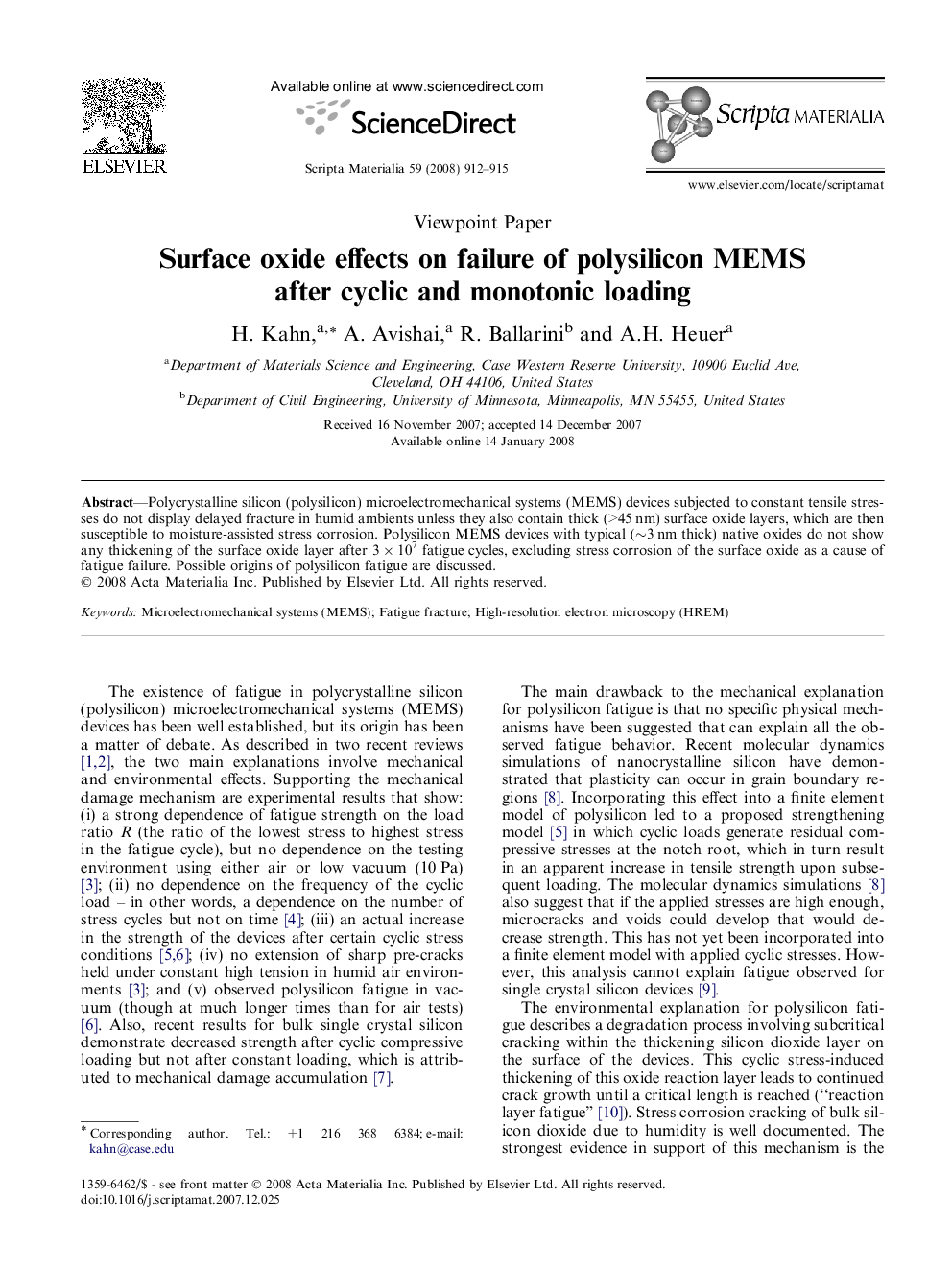| Article ID | Journal | Published Year | Pages | File Type |
|---|---|---|---|---|
| 1502339 | Scripta Materialia | 2008 | 4 Pages |
Abstract
—Polycrystalline silicon (polysilicon) microelectromechanical systems (MEMS) devices subjected to constant tensile stresses do not display delayed fracture in humid ambients unless they also contain thick (>45 nm) surface oxide layers, which are then susceptible to moisture-assisted stress corrosion. Polysilicon MEMS devices with typical (∼3 nm thick) native oxides do not show any thickening of the surface oxide layer after 3 × 107 fatigue cycles, excluding stress corrosion of the surface oxide as a cause of fatigue failure. Possible origins of polysilicon fatigue are discussed.
Keywords
Related Topics
Physical Sciences and Engineering
Materials Science
Ceramics and Composites
Authors
H. Kahn, A. Avishai, R. Ballarini, A.H. Heuer,
